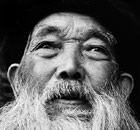Top Biz News
Official calls for communication to solve disputes
(Xinhua)
Updated: 2010-03-31 17:38
 |
Large Medium Small |
BEIJING - A Chinese mainland official on Wednesday called for a rational exchange of views to solve disputes over the Economic Cooperation Framework Agreement (ECFA).
Yang Yi, spokesman of the State Council Taiwan Affairs Office, made the remarks at a regular press conference after a media report said the island's "green camp" planned to launch a campaign opposing the ECFA.
"It is perfectly normal for some people on the island to have different ideas about the framework agreement's economic impact. People of different opinions should improve their understanding and solve disputes through rational and reasonable communication rather than resorting to drastic methods," said Yang.
The ECFA is intended to normalize mainland-Taiwan economic ties and bring the two economies closer.
The pact will cover major economic activities across the Taiwan Strait, including market access for commodity and services trade; rules of origin; an early harvest program; trade remedies; dispute settlement; investment; and economic cooperation.
Yang said during an interview with Taiwan-based Want Daily Tuesday, that Wang Yi, director of the State Council Taiwan Affairs Office, had articulated the mainland's view about how the island can benefit.
| ||||
Wang said that the mainland's request for tax reductions will not affect the island's vulnerable industries.
The mainland does not intend to export labor to Taiwan and will not require the island to further increase its imports of mainland farm products, Wang added.













